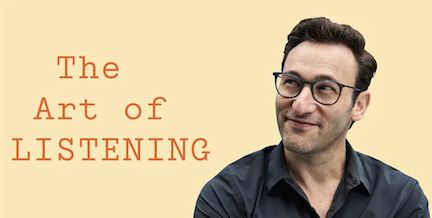Rhino Reciprocity
A cheeky bird hitching a ride atop a rhino is a fascinating, perhaps humorous, image.
"Known as an oxpecker," the Rhino Recovery Fund reports:
[This] little bird maintains a reciprocal relationship with Africa’s white and black rhinos. Even the bird’s Swahili name means 'the rhino’s guard.' Oxpeckers feast upon the insects, parasites, and ticks that agitate rhinos, liberating the horned giants of these tiny pests.

The birds also serve as an alarm system for the poorly-visioned rhino. When danger approaches, the oxpecker creates a commotion, promptly warning the rhino of an approaching threat, like lions or hyenas. A recent study found that rhinos who enjoy the company of oxpeckers are more likely to avoid getting shot by poachers. As with any other threat, oxpeckers sound the alarm to an approaching human, increasing the chance for a rhino to avoid poachers.
This relationship between the rhino and the bird speaks of a reciprocal relationship and action, not a transactional one. When the Holy Spirit prompts us to show mercy, to minister to or care for another, it is a blessing to both them and us. Specifically, the mercy and grace of God liberates and protects us from evil desires, actions, words, and the Lord’s judgment.
Disciples of Jesus who appreciate having experienced His mercy and grace, then extend His mercy and grace to others.
God's mercy and grace are gifts to be received and extended, not based on conditional, transactional exchanges.
"As each has received a gift, use it to serve one another, as good stewards of God's varied grace" (1 Peter 4:10, ESV).
"Blessed are the merciful, for they shall receive mercy" (Matthew 5:7, NIV).
Wishing for Wells - The Story of Ryan Hreljac
In 1998, Ryan Hreljac was a six-year-old boy living in Kemptville, Ontario, Canada. During a lesson at school, Ryan's teacher explained that many children in Africa had to walk long distances to fetch water, and even then, the water was often dirty and unsafe to drink. The teacher mentioned that $70 was enough to build a well that could provide clean water to an entire village.
This fact struck Ryan deeply. At six years old, he couldn't fathom a world where people lacked access to something as basic as clean water. He went home and told his parents he wanted to help. Ryan’s parents were supportive but thought it would be a fleeting interest. However, Ryan was determined.
Ryan started doing extra chores around the house, like vacuuming and cleaning, and he even skipped treats and toys to save money. It took him four months to raise the $70. When he approached a local organization, WaterCan (now part of WaterAid Canada), he learned that the cost of building a well was actually closer to $2,000. Instead of being discouraged, Ryan doubled down, enlisting the help of friends, family, and his community to raise the additional funds.
With the help of donations, Ryan eventually raised enough money to build his first well in Angolo Primary School in Uganda. In 1999, at just seven years old, Ryan traveled to Uganda to see the well in person. There, he met the children who benefited from the clean water his efforts had brought. It was a life-changing experience for Ryan, as he realized how much of an impact one act of giving could have.

Ryan didn’t stop with one well. Inspired by his trip to Uganda, he founded the Ryan’s Well Foundation in 2001. The foundation focuses on providing access to clean water, sanitation, and hygiene education in developing countries. Ryan continued to speak at schools and events, encouraging others—especially young people—to take action and make a difference.
Ryan’s story is a testament to how one small act of giving can grow into something extraordinary. He often says: "Anyone can make a difference, and no matter how small you are or how young you are, you can make a change in the world." Ryan, now an adult, continues to be involved in the foundation while inspiring young people globally to take action in their own communities. His story highlights the power of determination, empathy, and the incredible impact of giving, no matter your age or resources.
"For I was hungry, and you fed me. I was thirsty, and you gave me a drink. I was a stranger, and you invited me into your home ... I tell you the truth, when you did it to one of the least of these my brothers and sisters, you were doing it to me!" (Matthew 25: 35, 40, NLT).
The Great Gift of Listening
Mark Lukach recounted to The Guardian how inadvertently listening to his emotionally ill, suicidal wife, helped her cope with her mental illness:
One afternoon my wife, Giulia, asked me: “Mark, if I kill myself, will you promise me that you will find a new wife so that you can still be happy?” I sighed and leaned back into the chair next to her, unsure of what to say.
Actually, that’s not entirely true. I knew exactly what I wanted to say. I had been saying it for eight months. It’s just that at that moment, I was so tired – tired from work, tired from worry, tired from so many conversations about suicide – that I didn’t have the energy for it again. So I sat in silence.
My wife had been hospitalised eight months previously with a psychotic break. It started with a new job, which made Giulia more stressed than she had ever been, to the point of work paralysis, loss of appetite and inability to sleep. The slide into psychosis was rapid and entirely unexpected. Sure, she had been stressed out before, but nothing like this. Out of desperation, I took her to the emergency room, where they admitted her to the psych ward for 23 days to address her escalating paranoia and delusions.
She came home from the hospital heavily medicated and suicidally depressed. She had little to no energy for anything, and spent much of her time wishing that she could kill herself.
This was terrifying for me. I took a few months off work, so that she wouldn’t be alone all day, a prospect that worried me and her doctors. When she brought up suicide, which was all the time, I panicked. I treated her feelings like a fire, and I was the extinguisher. I had to act quickly, otherwise the warning sparks could grow.
Her first fixation was on overdosing on her medication, so I concocted a plan to hide the pills. I changed the hiding place every few days, and retrieved the medication each night as she waited for me in the bathroom, and then hid them again after she took them. Can’t overdose on pills if you can’t find them.
Then her focus shifted to the Golden Gate Bridge. She wanted to drive there on our scooter and jump off, and she told me about this, over and over again. I couldn’t hide a bridge.
She told me these things when we were walking on the beach together, or at home cooking dinner, but I was so afraid that I responded in full emergency mode, as if we were up on the bridge, Giulia on one side of the railing and me on the other. I couldn’t not see it that way. Someone I loved was in pain, and I needed to do something about it.
“Doing something” meant reminding her of all the reasons it was worth staying alive – how good we had it, how much our families loved us, how much there was to look forward to. It almost became a script, a choreographed dance: she told me she felt suicidal; I tried to overwhelm her feelings with why she shouldn’t feel that way. It never convinced her of anything. But on that afternoon, exhaustion had beaten me down into shutting up. I sat quietly and held her hand.
She looked at me in surprise. Cautiously, she ventured with another thought. “I hate myself so much, and I want to die,” she said, and I said nothing.
“I wish I had never been born,” she said.
More silence.
She continued through her tortured feelings. I listened, and hated what I heard, but I knew that at this moment she was safe. We weren’t actually there on the bridge railing. We were at home, together, and there was no way she could act upon her pain. These were just words.
And then she left me stunned. “Thank you for listening to me,” she said, pulling my hands to her lips to kiss. “It’s so nice to talk to you. I feel a lot better.”
I hadn’t said a word. It dawned on me how little I had been listening to her, without judgment or rush to action. She didn’t need me to tell her that everything was going to be OK. That didn’t help. She needed me to hear her pain. Being heard somehow made it more manageable.

He concluded:
On that afternoon I finally learned that when any of us is in pain, the greatest gift you can give is to listen, patiently and purely.
The best biblical example of this principle comes to us from the Book of Job. As he sat on his ash heap in deepest mourning, his friends approached and visibly saw his depair. His grief was palpable. Then scripture says this:
"Then they sat on the ground with him for seven days and seven nights. No one said a word to him, because they saw how great his suffering was" (Job 2:13, NIV).
Before his friends grew weary of sitting silently, having given into their baser instincts of shame and judgement, they first sat silently. In quiet compassion, they sat silently. In solidarity with his pain, they sat silently.
Those were probably seven of the most comforting, consoling days of Job's entire horrific ordeal.
Rather than inadvertently stumbling upon the gift of listening, as the author above did, let us intentionally purpose to listen first ... patiently and purely!
"My dear brothers and sisters, take note of this: Everyone should be quick to listen, slow to speak and slow to become angry" (James 1:19, NIV).